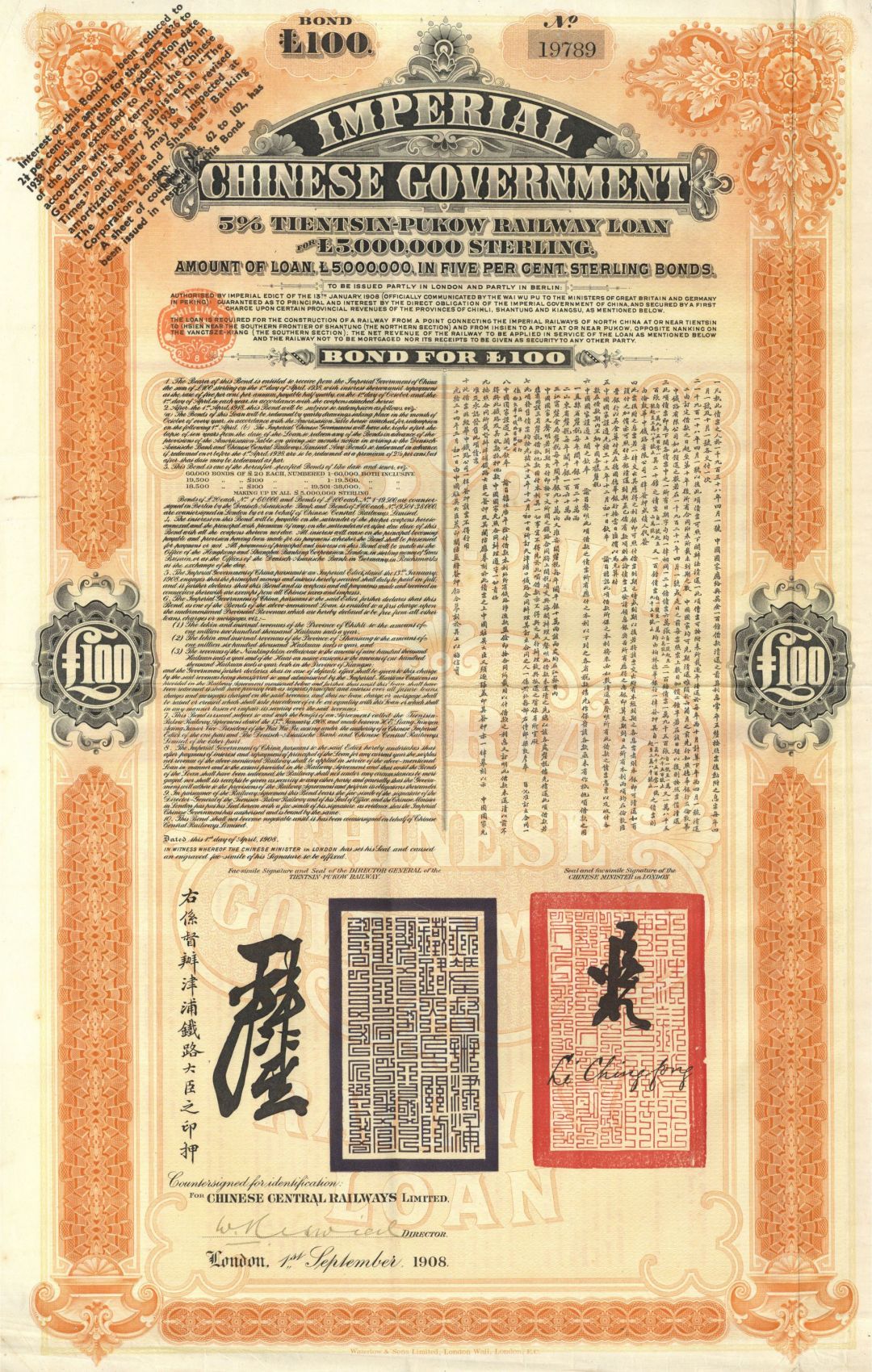£100 Imperial Chinese Government 5% Tientsin-Pukow Railway Loan 1908 Uncanceled Gold Bond - China
Inv# FB5139 Bond5% 100£ Bond. Tientsin-Pukow Railway Loan. 3 complete rows of coupons. The Tianjin–Pukou or Jinpu railway runs from Tianjin to Pukou outside Nanjing in Jiangsu province.
In September 1898 at a conference in London, British and German capitalists decided to build a railway from Tianjin to Zhenjiang. In May 1899, the Qing government agreed to the financing of the railway construction along with a series of bank loans. In 1908, the plan for the railway line was changed to Tianjin to Nanjing, in the Pukou District which is on the north side of the Yangtze River. Construction of the railway began in 1908 and the Tientsin–Pukow railway was completed in 1912. All together, the original railway line was built with 85 stations, of which 31 were in Shandong province. Rail traffic had to be ferried across the Yangtze to Nanjing to connect with the railroads passing through that city until the Nanjing Yangtze River Bridge was built across the river in 1968. Currently, it is the main section of Jinghu railway.
The Tientsin–Pukow Railway Operation was a follow up operation to the Battle of Beiping-Tianjin of the Japanese army in North China at the beginning of the Second Sino-Japanese War, fought concurrently with the Beiping–Hankou Railway Operation. The Tientsin–Pukow Railway Operation was not authorized by Imperial General Headquarters. The Japanese advanced following the line of the Tianjin-Pukou Railway aiming to the Yangtze River without meeting much resistance. The Japanese advance stopped at Jinan 36.67°N 116.98°E on Yellow River after majority of the participating Japanese forces were redirected for the Battle of Taiyuan and replaced by parts of the newly formed 109th division. After the stalemate at Yellow River from November 1937 to March 1938, the fighting resumed resulting in Battle of Xuzhou.
A bond is a document of title for a loan. Bonds are issued, not only by businesses, but also by national, state or city governments, or other public bodies, or sometimes by individuals. Bonds are a loan to the company or other body. They are normally repayable within a stated period of time. Bonds earn interest at a fixed rate, which must usually be paid by the undertaking regardless of its financial results. A bondholder is a creditor of the undertaking.











Ebay ID: labarre_galleries